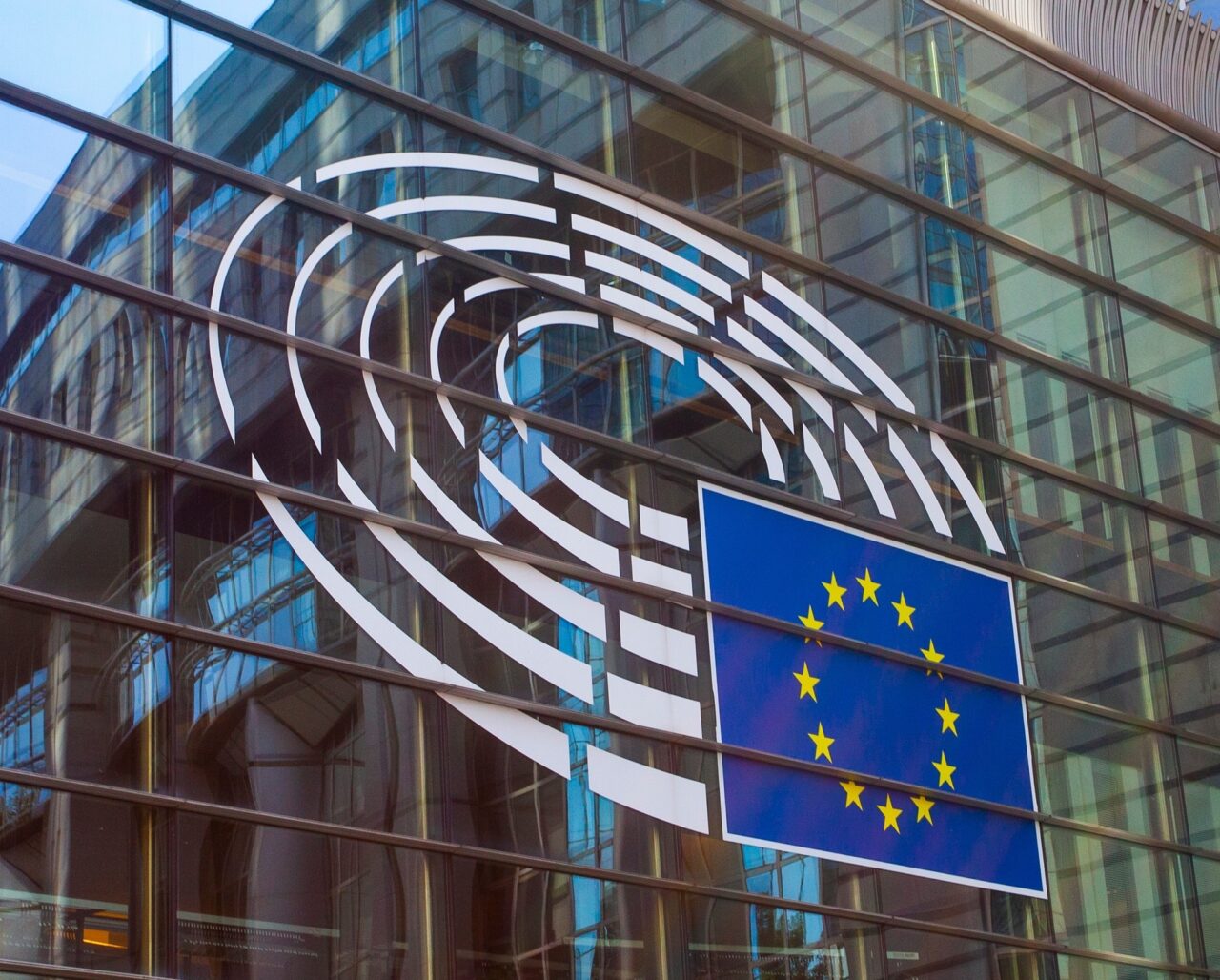
Stories of Ukrainian civil society representatives inspired by a study visit to Brussels.
Networking with European partners, team collaboration, a deeper understanding of the EU’s internal mechanisms, and gaining additional insights for forecasting strategic directions in Ukraine’s foreign policy – these are the outcomes brought back by representatives of five civil society organizations after their study tour to Brussels. The trip was organized by East Europe Foundation with financial support from the Embassy of Ireland in Ukraine.
The groundwork for new ideas was laid through visits to several key institutions in the unofficial capital of the European Union:


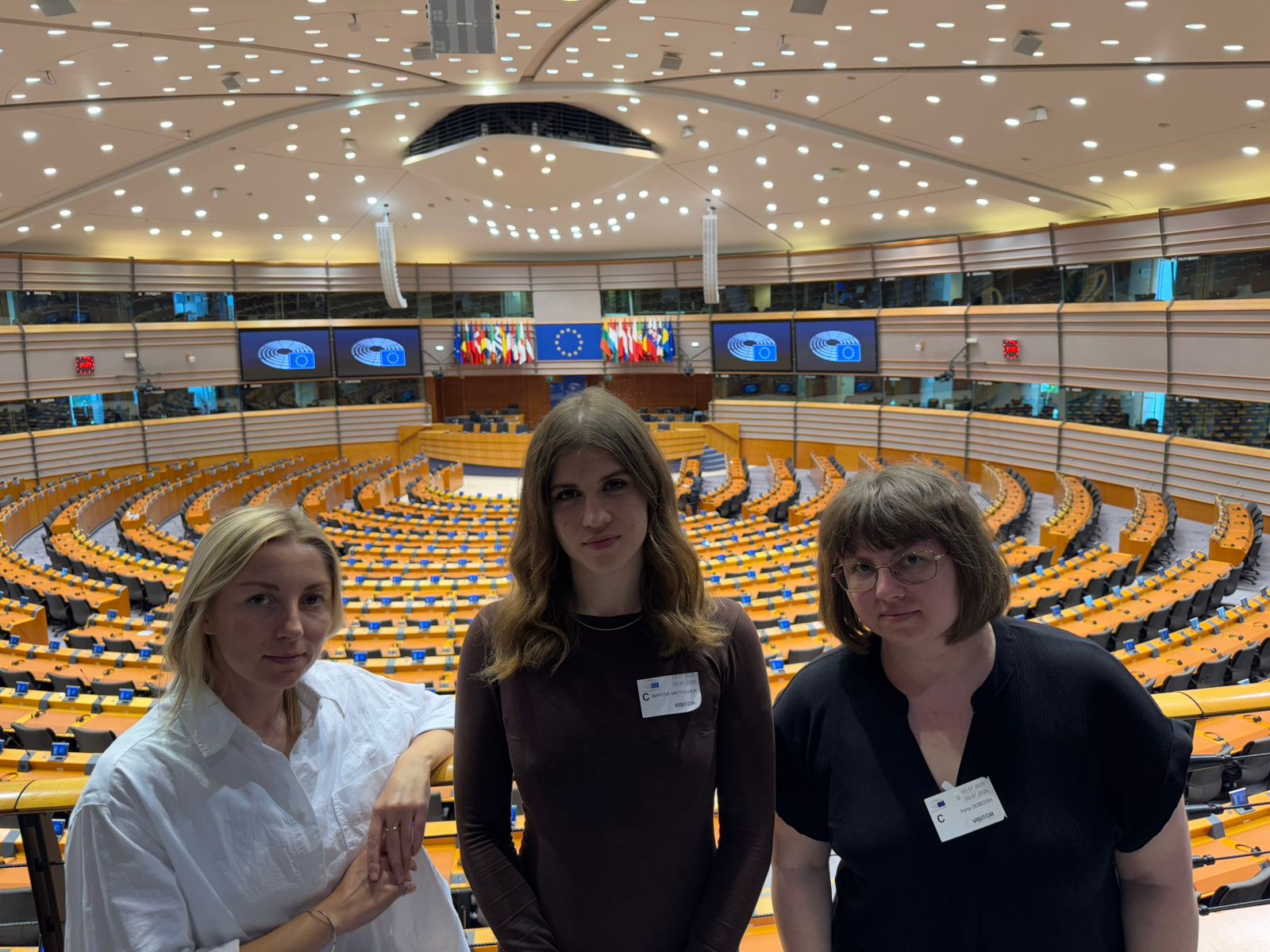
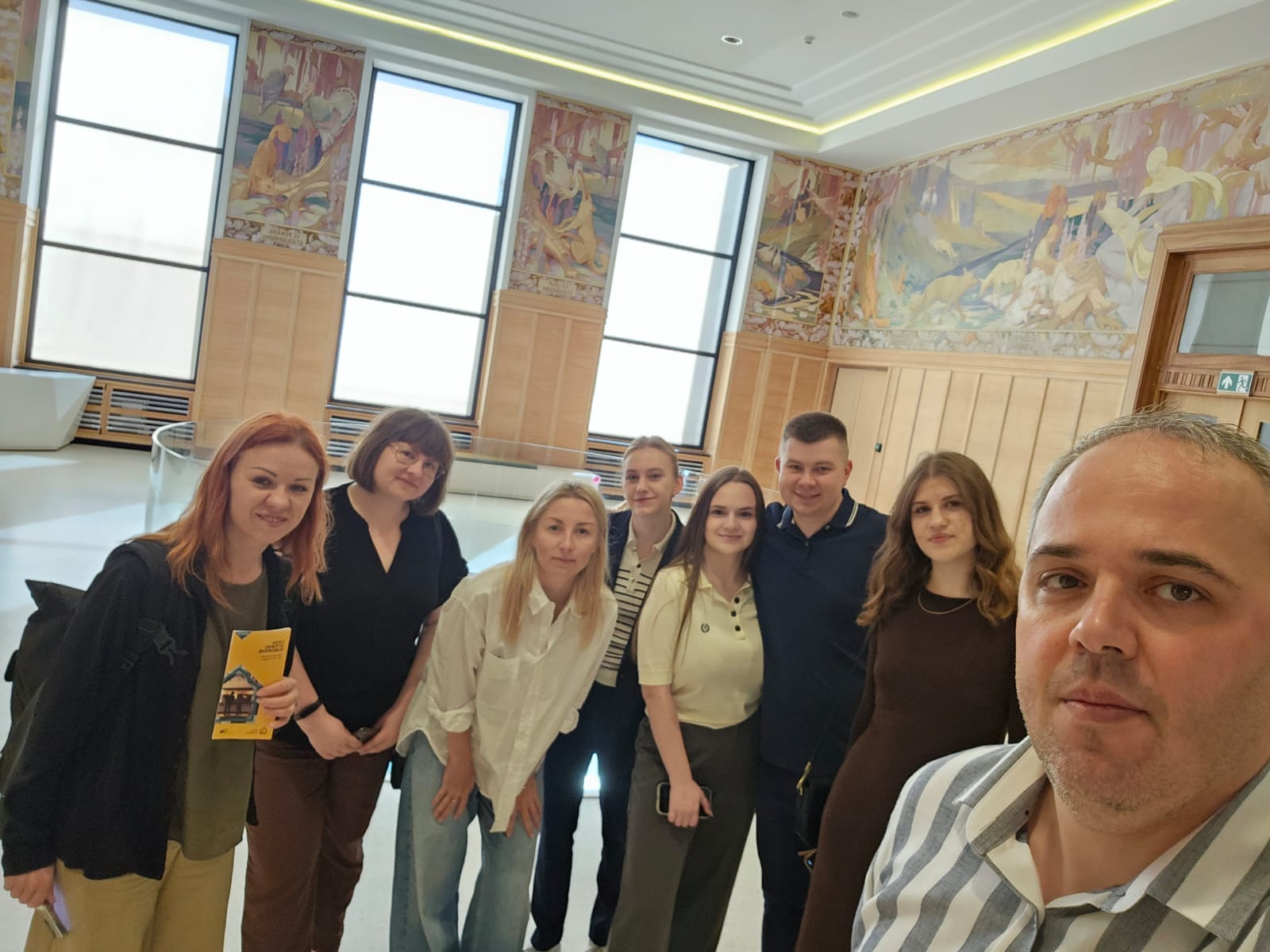
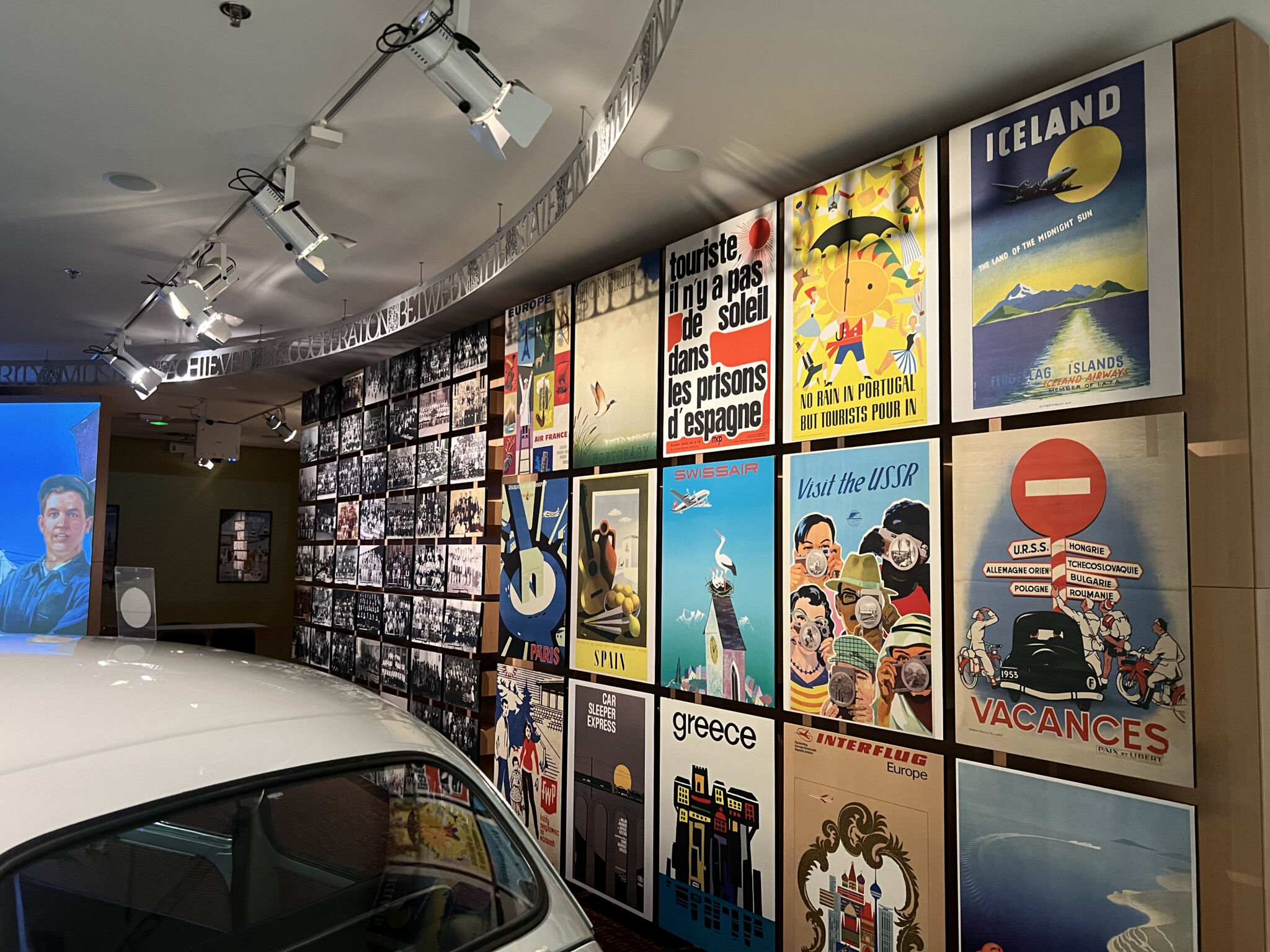

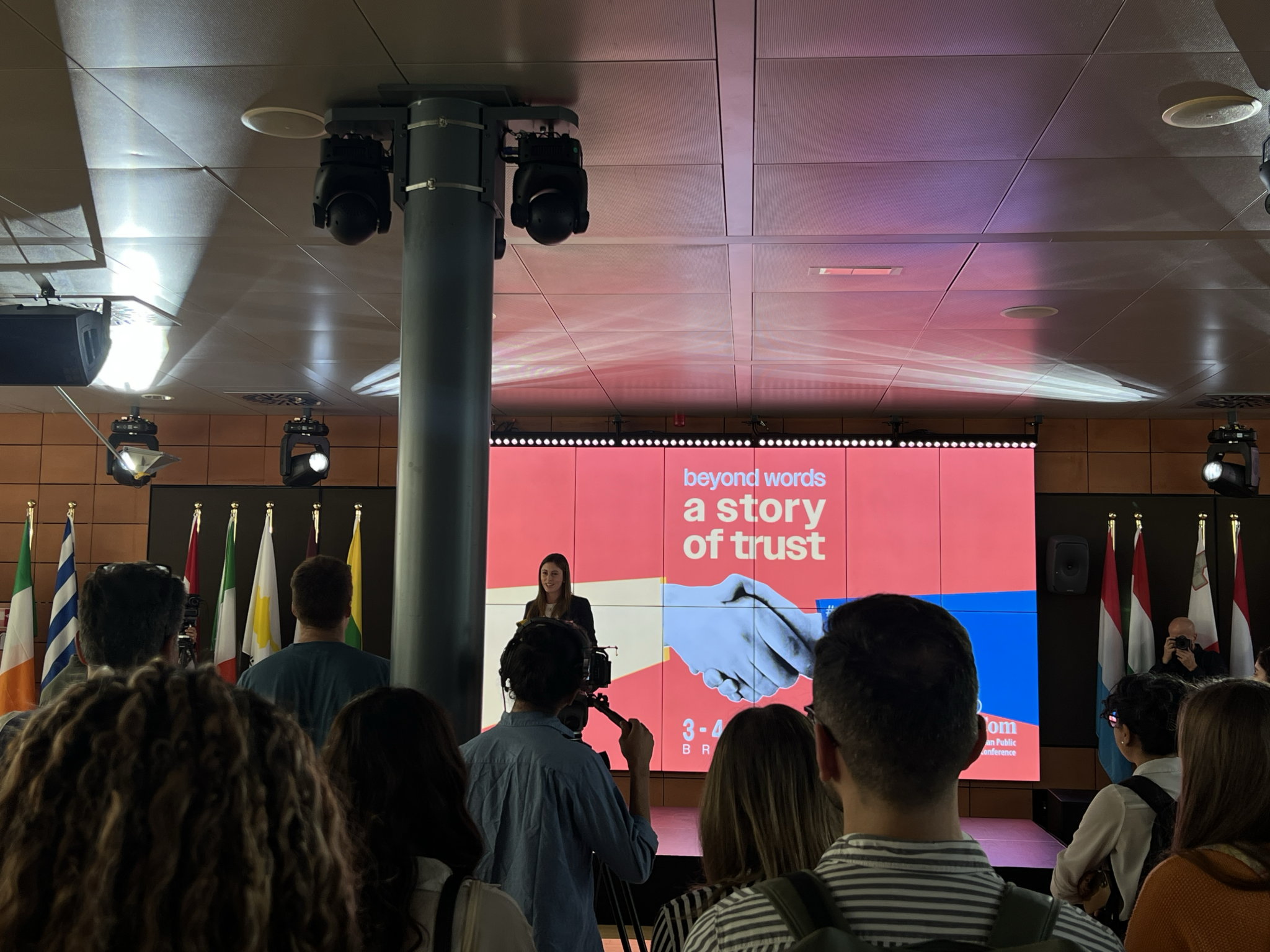
More about the trip – in the participants’ comments below.
Vox Ukraine
An independent analytical platform focused on the economy, public governance, social processes, reform analysis, and Ukrainian legislation. The organization also encourages experts to voice their opinions and serves as a platform for publishing professional articles.
Recently, Vox Ukraine held a conference titled “EU. BUT THERE’S A CATCH.” The event became a unique space for an open dialogue between civil society representatives, experts, and the media. It provided an opportunity to discuss Ukraine’s real achievements on its reform journey, its military resilience, and institutional adaptability – with a focus on the factors that are slowing the country’s progress toward the European Union.
Kateryna Ionova, analyst at Vox Ukraine:
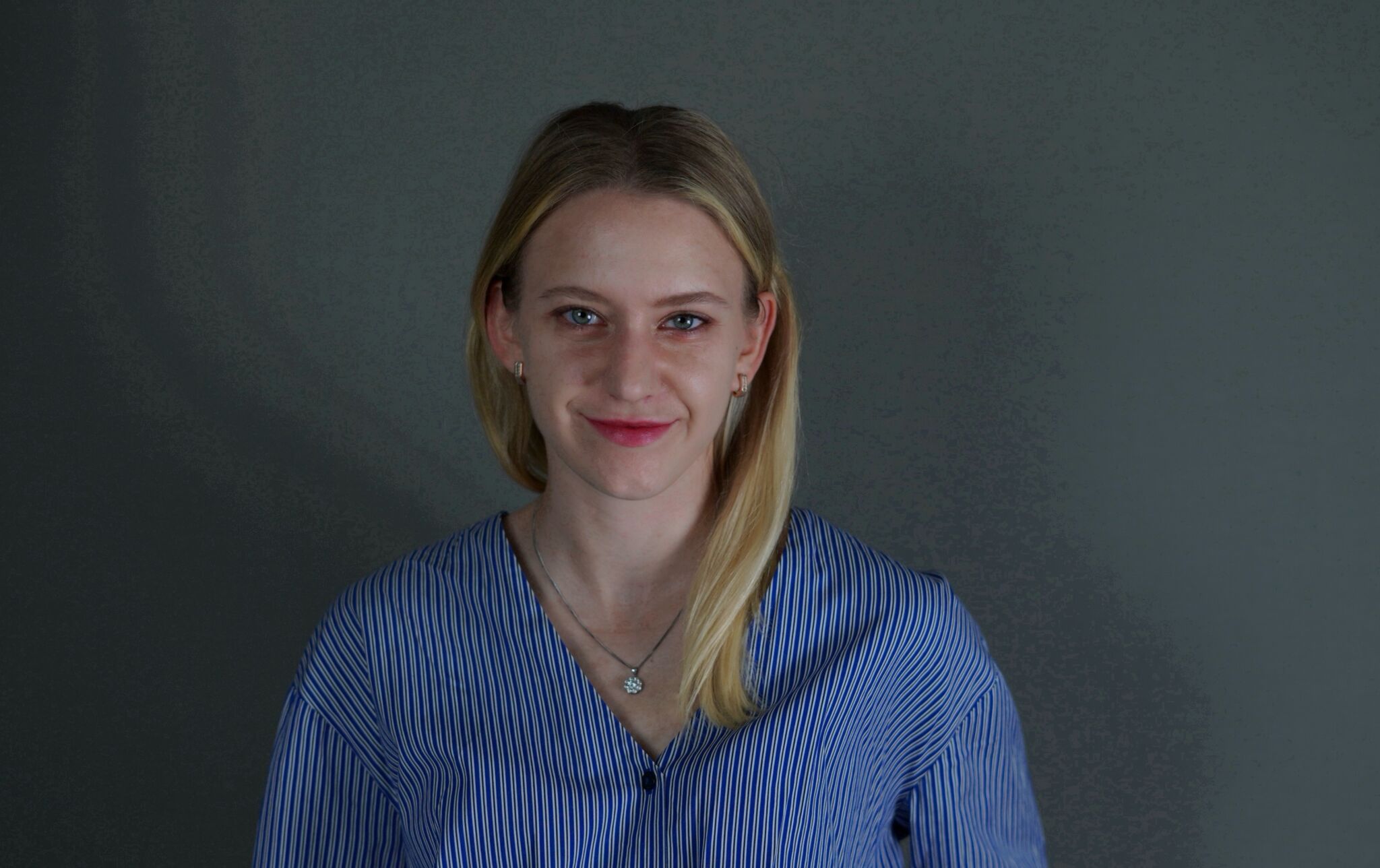
My area of work is fact-checking and everything related to the media space. I search for information, verify it, and organize it for various projects within our organization.
My professional activities often intersect with European legislation. For example, in the field of digital regulation. In this context, I worked on systematizing what has already been done to align Ukrainian law with the EU’s single roaming area.
To understand which areas our civil society think tank should focus its analytical efforts on – and when it is the right time to publish our materials – it is crucial to regularly “synchronize watches” and grasp the current priorities of our European partners. The study tour to Brussels made that possible. In particular, Irish representatives at the EU institutions shared up-to-date information on the screening of Ukrainian legislation, as well as their own insights into the likely timeline for opening the next negotiating clusters.
At Vox Ukraine, I’m also involved in integrating artificial intelligence into the organization’s work. That’s why I was especially pleased that the public communication conference at the European Committee of the Regions placed significant emphasis on to the impact of AI on European governance and citizens’ trust in it. By the way, I met one of the event organizers there – Lydia Kampouroglou, Communications Assistant at the Office of the Secretary-General of the European Commission. She coordinates cooperation with EU candidate countries and, in particular, builds connections with Ukrainian think tanks. We’ve already begun looking for a topic for joint research.
Easy Business
This think tank brings together experts in economics, European integration, and regional development to ensure that the synergy between private sector growth and empowered regions improves overall well-being and contributes to Ukraine’s accession to the European Union.
The organization has developed a number of guides for Ukrainian NGOs on how to access European funding. Open access to grant opportunities for both civil society organizations and public institutions is a key stage of integration into EU systems. Vasyl Babych, European integration expert and Partnership Development Manager at Easy Business NGO, spoke about the opportunities EU membership would unlock for communities and regions in the free online course “Ukraine’s Accession to the EU” on the Zrozumilo! education platform.
Sofiia-Anna Kakhnovets, European integration expert:
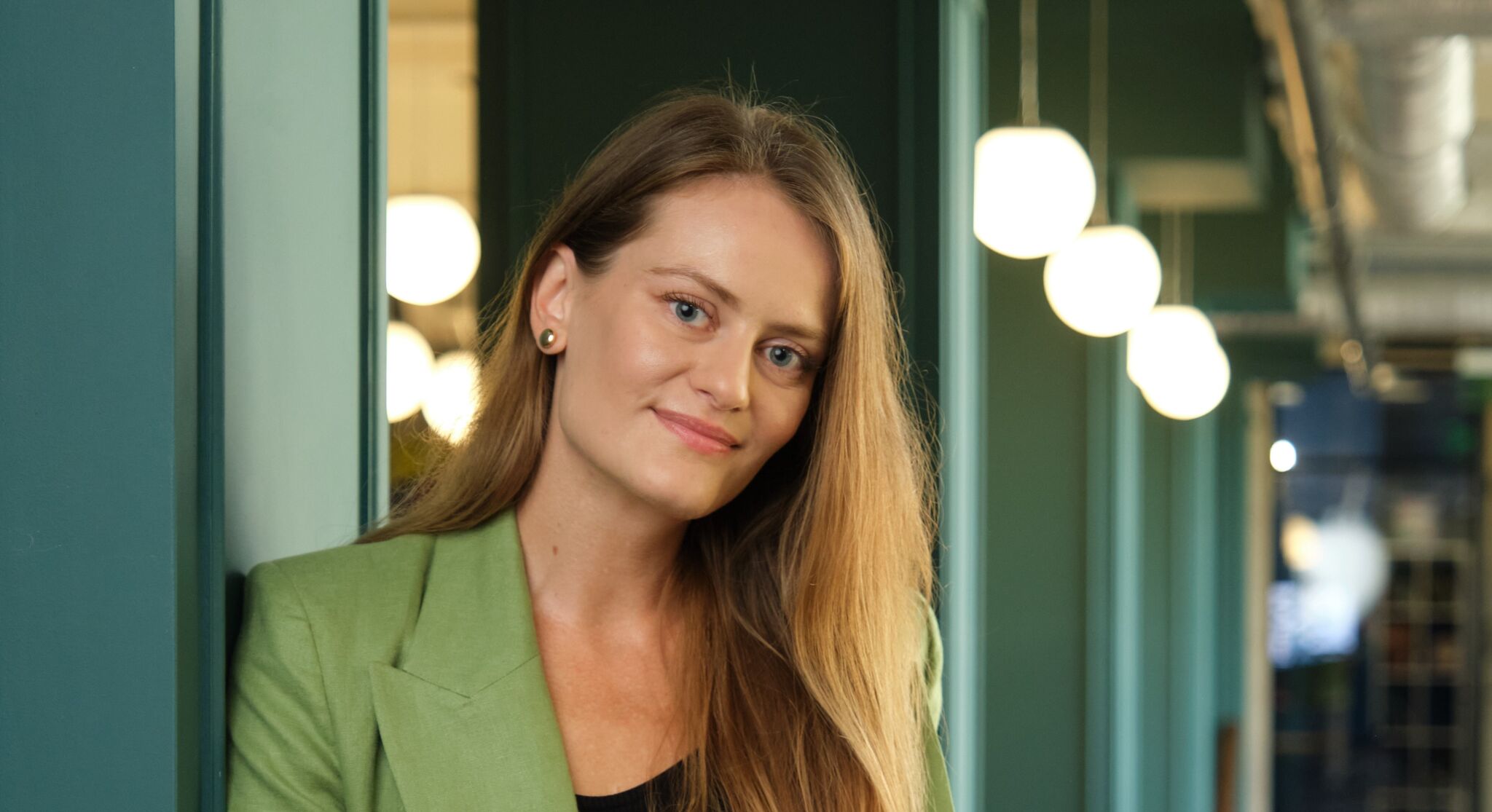
My team’s work and mine in particular is directly tied to the European integration process. Since it includes not only legal alignment but also many sectoral areas, this stage of legal harmonization allows us to work across a wide variety of domains.
During the study visit to Brussels, one of the most important takeaways for me was hearing from Irish representatives to the EU about the number of people involved in Ukraine’s integration process – over 100 officials. On our side, we understand how large-scale and complex the negotiation process is, but it’s equally important to realize the enormous level of engagement from the EU. So, to the question, “Is the EU really waiting for us in its family?” – my answer is clear: so many people and entire institutions are working hard on this, which proves their genuine interest in Ukraine’s presence in the EU.
Moreover, after the study tour, I came back with new ideas on how to make our educational content even more interactive and enriched with practical case studies, so that audiences can fully immerse themselves in the essence of these crucial processes.
Yaroslav Yashchenko, economic development expert:

Even though I work on the economic team of our organization, I constantly have to consider European integration processes. For example, when identifying priority sectors of the Ukrainian economy for integration into EU value chains, it’s not enough to rely solely on economic indicators (employment, growth, revenue, etc.). Significant attention must also be paid to the standards, directives, and requirements set by EU institutions.
That’s why the study tour to Brussels gave me a better understanding of the internal processes behind the screening of Ukrainian legislation and the preparation of screening reports. I also found the lecture at the European Parliament especially insightful. I learned more about how the institution functions and how the European Commission and the Council of the EU interconnect. This changed my perspective on EU decision-making – I now see it not just as an economic union, but a political one as well.
During the trip, we also connected with colleagues, which opens up the possibility of forming a consortium or implementing a joint project in the future.
Ilko Kucheriv Democratic Initiatives Foundation
For over two decades, the Foundation has been conducting sociological research, using surveys including those related to security and European integration to track public attitudes and trends in Ukrainian society. In the long term, the Foundation’s accumulated data highlights critical points where public opinion has shifted over the years and across different regions of Ukraine.
For example, support for Ukraine’s integration path – accession to the EU – grew from 43% in 2013 to 69% in 2024.
Marianna Prysiazhniuk, political analyst:
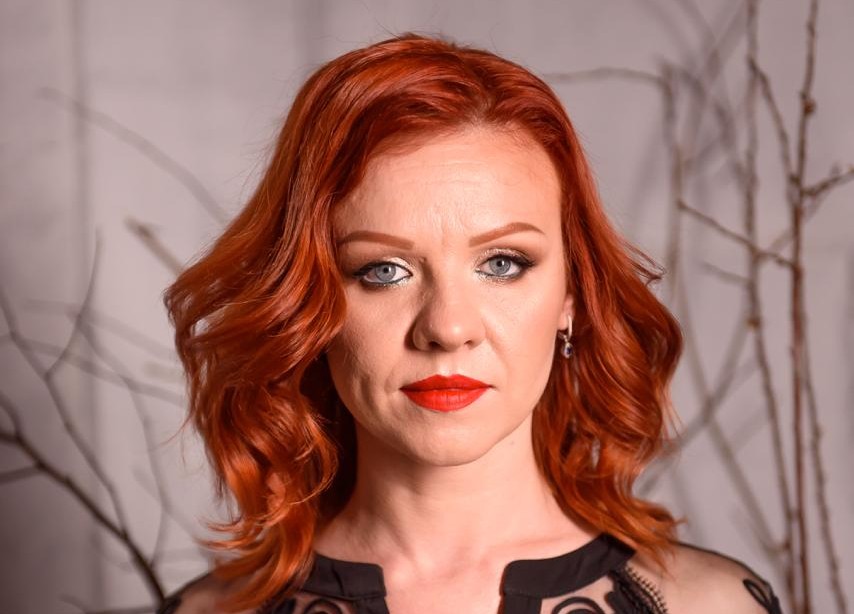
I study the European integration processes in Ukraine’s neighboring Danube region countries, such as Romania and Moldova. This makes it possible to view integration from a regional perspective and analyze which aspects of our neighbors’ experiences can benefit Ukraine and which challenges we might be able to avoid.
In my analysis, I often apply the approach of an informed pessimist. This significantly broadens the field for forecasting, especially when it comes to the strategic directions of a country’s foreign policy, and particularly in the context of war.
Ukraine is a large country, and I’m concerned that Europe has yet to initiate an internal dialogue on reforming its own decision-making processes. That’s why, in my articles, I focus on conveying the current situation to Ukrainians. For instance, Moldova may become an EU member before Ukraine does and it’s better to have a pro-European neighbor at your back than one left outside the integration process. At the same time, this should not play into the hands of our enemy or demoralize society. European integration and European values must remain the guiding compass for our country’s development.
The study tour to Brussels has undoubtedly enriched both my expertise and the dialogue I promote in working with our partners. During various meetings, I was reminded of the importance of accounting for historical contexts. The EU integration experiences of Poland, Romania, and other countries give us more entry points for creatively shaping discourse with our European partners – those who want to see Ukraine in the European family. But these processes are very complex and time-sensitive.
I was also intrigued by the potential for collaboration with legal-focused organizations that joined the study tour. I am currently working on developing an idea in this direction.
Institute of Legislative Ideas
This think tank focuses on promoting good governance, advocating for reforms, and developing legislation in line with Ukraine’s EU commitments. The Institute works on issues related to sanctions, anti-corruption measures, cultural policy, and securing reparations using the assets of the aggressor state.
Currently, the organization is:
Andriy Klymosuk, Head of Sanctions Policy Projects:
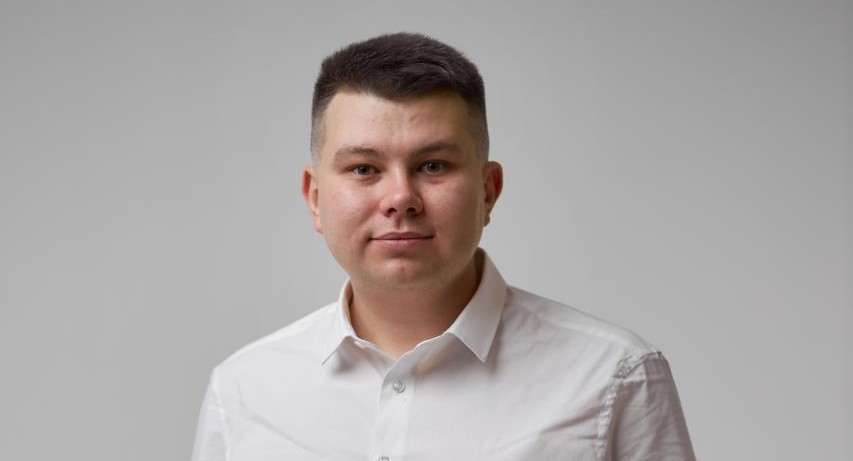
Our team is working on a comprehensive upgrade of Ukraine’s sanctions policy to align it with European norms and standards, and to ensure it functions as a tool for protecting national security not as an instrument for political or other types of misuse.
The key to successful EU integration lies in legislation that is prepared and harmonized in advance, not at the last moment. That’s why, in our organization, we strive to base our work on existing EU regulations and directives, and incorporate global best practices. During the advocacy process, this approach serves as an additional tool to influence lawmakers – the argument that we must meet our EU obligations is a powerful driver of change.
Thanks to the study tour to Brussels, we had the opportunity to step outside our own bubble, gain a broader perspective, and understand what our collegues are working on. This will undoubtedly help us build new partnerships. Unfortunately, the lack of understanding of cross-cutting processes between different areas of civil society often artificially limits our sector’s potential.
The tour also served as a great opportunity to get to know EU institutions, understand their principles, and see how they function from the inside. I believe in our future in the EU and am convinced that each of us should have a deeper understanding of how the Union operates and the rules we will soon follow as a member state.
The trip was part of the “Towards the EU” Program implemented by East Europe Foundation with the financial support of the Embassy of Ireland in Ukraine.